Covid-19: Up-to-date Info for Tourists in Greece
The Greek government still has Covid-19 safety measures in force throughout the country at the moment.
Following is useful information for those planning a trip to Greece. It is noted that the Covid-19 safety measures in Greece are reviewed on a weekly basis. The following rules will be in force until April 4 and may be extended.
General information
Face masks are mandatory in all public indoor areas. This includes hotels; cafes, restaurants and bars (when not seated); shops; museums and other cultural centers; supermarkets; taxi cabs; public transport; and ski lifts. Wearing masks outdoors is no longer mandatory.
Tourists in Greece should also be aware that entrance to public services, banks and churches is allowed only after presenting a valid vaccination certificate or a valid recovery certificate or a negative test result (rapid or PCR). Moreover, unvaccinated individuals cannot enter indoor areas of restaurants, cafes, bars, museums, theaters, cinemas and gyms.
Traveling to Greece
The Hellenic Civil Aviation Authority (HCAA) every two weeks updates its Covid-19 aviation directives (NOTAMs) that include the rules travelers arriving in Greece on international flights must follow.
In short, the Greek authorities do not impose additional restrictions for European Union Digital Covid Certificate (EUDCC) holders coming from EU/Schengen zone countries and 35 non-EU countries and territories that have joined the EUDCC system (San Marino, Albania, Andorra, Armenia, the Vatican, Northern Macedonia, Georgia, Switzerland, El Salvador, United Arab Emirates, the United Kingdom, Iceland, Israel, Liechtenstein, Lebanon, Morocco, Montenegro, Moldova, Monaco, Norway, New Zealand, Ukraine, Uruguay, Panama, Cape Verde, Serbia, Singapore, Thailand, Togo, Turkey, Tunisia, Benin, Jordan, Faroe Islands and Chinese Taipei).
Vaccinated travelers entering Greece from the United States of America, Canada and Australia are also exempt from additional restrictions upon arrival provided they have a valid vaccination certificate or a valid recovery certificate or a negative Covid-19 test (PCR or rapid).
All other inbound travelers to Greece that do not have an EUDCC (including children over 5 years old) and regardless of their Covid vaccination status must present a negative PCR test result (performed within 72 hours before travel) or a rapid antigen test result (performed within 24 hours before travel) upon arrival.
Also, all travelers entering Greece, regardless if they are a holder of the EU Digital Covid Certificate, may be subject to random COVID-19 rapid testing at the airport.
It should be noted that from 15 March 2022 onwards, travellers visiting Greece are no longer required to fill out the Passenger Locator Form (PLF). However, a simplified PLF remains in operation, the completion of which is OPTIONAL, for the sole purpose of enabling the traveller / family to issue an EU Certificate of negative or positive COVID-19 test result. Press here for further information.
What is needed to enter hotels
When checking in a hotel, guests must show one of the following:
a) a vaccination certificate valid for 7 months after the completion of the basic vaccination and without time limit for travellers who have received the booster dose
b) proof of recovery from SARS-CoV-2 infection, issued 14 days after the day of the first positive COVID-19 test (PCR or Rapid Antigen test) and valid for 90 days thereafter
c) a negative molecular test for COVID-19 (PCR) performed up to 72 hours before entrance, or a negative rapid antigen test performed up to 48 hours before entrance.
It is noted that hotel guests aged 4 to 17 years old may, alternatively, show a negative self-test result (either in print or electronic form) performed up to 24 hours before entrance. The self-test declaration form can be accessed here. Guests have to print it out, write their negative test result, sign it and then present it when requested along with identification. Guests can also present their negative test result in digital form (TaxisNet codes and AMKA social security number are necessary).
What is needed to enter cafes, restaurants & bars
Indoor areas
Access to INDOOR areas of cafes, restaurants & bars is allowed only after showing one of the following:
a) a vaccination certificate valid for 7 months after the completion of the basic vaccination and without time limit for travellers who have received the booster dose
b) proof of recovery from SARS-CoV-2 infection, issued 14 days after the day of the first positive COVID-19 test (PCR or Rapid Antigen test) and valid for 90 days thereafter
It is noted that people aged 4 to 17 years old may, alternatively, show a negative self-test result (either in print or electronic form) performed up to 24 hours before entrance. The self-test declaration form can be accessed here. Guests have to print it out, write their negative test result, sign it and then present it when requested along with identification. Guests can also present their negative test result in digital form (TaxisNet codes and AMKA social security number are necessary).
Outdoor areas
Access to OUTDOOR areas of cafes, restaurants & bars is allowed only after showing one of the following:
a) vaccination certificate valid for 7 months after the completion of the basic vaccination and without time limit for travellers who have received the booster dose
b) proof of recovery from SARS-CoV-2 infection, issued 14 days after the day of the first positive COVID-19 test (PCR or Rapid Antigen test) and valid for 90 days thereafter
c) a negative molecular test for COVID-19 (PCR) performed up to 72 hours before entrance, or negative rapid antigen test performed up to 48 hours before entrance.
It is noted that people aged 4 to 17 years old may, alternatively, show a negative self-test result (either in print or electronic form) performed up to 24 hours before entrance. The self-test declaration form can be accessed here. Guests have to print it out, write their negative test result, sign it and then present it when requested along with identification. Guests can also present their negative test result in digital form (TaxisNet codes and AMKA social security number are necessary).
The above measures are also valid for entrance to indoor/outdoor cafes and restaurants in hotels.
Domestic travel by plane, ferry, KTEL bus, tourist coach, or train
To travel domestic (movement between regions) by plane, ferry, KTEL bus, tourist coach, or train, all passengers must have one of the following:
a) a vaccination certificate valid for 7 months after the completion of the basic vaccination and without time limit for travellers who have received the booster dose
b) proof of recovery from SARS-CoV-2 infection, issued 14 days after the day of the first positive COVID-19 test (PCR or Rapid Antigen test) and valid for 90 days thereafter, or
c) a negative molecular test for COVID-19 (PCR) performed up to 72 hours before entrance, or a negative rapid antigen test performed up to 48 hours before entrance.
It is noted that travelers aged 4 to 17 years old may, alternatively, show a negative self-test result (either in print or electronic form) performed up to 24 hours before entrance. The self-test declaration form can be accessed here. Travelers have to print it out, write their negative test result, sign it and then present it when requested along with identification. Travelers can also present their negative test result in digital form (TaxisNet codes and AMKA social security number are necessary).
Face masks must be worn by all passengers throughout the duration of trips.
Entrance to archaeological sites, museums
Indoor areas
Access to indoor areas of archaeological sites and museums is allowed only after showing one of the following:
a) a vaccination certificate valid for 7 months after the completion of the basic vaccination and without time limit for travellers who have received the booster dose
b) proof of recovery from SARS-CoV-2 infection, issued 14 days after the day of the first positive COVID-19 test (PCR or Rapid Antigen test) and valid for 90 days thereafter
Visitors aged 4 to 17 years old may, alternatively, show a negative self-test result (either in print or electronic form) performed up to 24 hours before entrance. The self-test declaration form can be accessed here. Visitors have to print it out, write their negative test result, sign it and then present it when requested along with identification. Visitors can also present their negative test result in digital form (TaxisNet codes and AMKA social security number are necessary).
In case of group organized guided tours with a tourist guide, distancing rules between visitors must be strictly followed as well as rules regarding face masks and rules concerning the mandatory use of audio tourist guide equipment (wireless microphone transmitters and receivers, better known as “whispers”) and the avoidance of using common devices (tablets, headphones, etc.).
The pre-purchase of tickets (e-tickets) for archaeological sites and museums that offer the service is highly recommended in order to control, as much as possible, the flow of visitors. Museum staff has received special instructions for the service of people with disabilities, people over 65, pregnant women, etc.
Open-air archaeological sites
All visitors in open-air archaeological sites must wear face masks and maintain a distance of 1.5 meters from one another.
Entrance to ski resorts
All guests can enjoy the OUTDOOR areas of ski centers. For the INDOOR areas of the chalets, guests must hold one of the following:
a) a vaccination certificate valid for 7 months after the completion of the basic vaccination and without time limit for travellers who have received the booster dose
b) proof of recovery from SARS-CoV-2 infection, issued 14 days after the day of the first positive COVID-19 test (PCR or Rapid Antigen test) and valid for 90 days thereafter
Visitors aged 4 to 17 years old may, alternatively, show a negative self-test result (either in print or electronic form) performed up to 24 hours before entrance. The self-test declaration form can be accessed here. Visitors have to print it out, write their negative test result, sign it and then present it when requested along with identification. Visitors can also present their negative test result in digital form (TaxisNet codes and AMKA social security number are necessary).
In addition:
– Catering areas/chalets at ski resorts operate in accordance with the rules that apply to indoor and outdoor catering establishments (restaurants) respectively.
– Shops at ski resorts operate in accordance with the rules that apply to the retail sector.
– Hostels/hotels of ski resorts operate in accordance with the rules that apply to hotels.
– At ski schools of ski centers, it is obligatory to wear a surgical mask in all areas.
– Equipment rental shops, which may be provided, operate in accordance with the rules that apply to retail stores with the additional obligation that rented clothes, ski masks and ski helmets need to be disinfected before being used again.
Moreover, the following applies for lifts at ski resorts:
– For open lifts, there are no restrictions. Occupants must wear masks.
– For closed lifts that have the possibility of continuous natural ventilation, there are no restrictions, provided that the occupants must wear a mask and there is natural ventilation.
– For closed lifts that do not have the possibility of continuous natural ventilation, they can be used at 50% of their capacity, provided that the passengers must wear a surgical mask. 100% of its capacity can be used for members of the same family.
Entrance to conferences and exhibitions
People wanting to attend conferences, exhibitions and trade fairs in Greece will need to have one of the following:
a) a vaccination certificate valid for 7 months after the completion of the basic vaccination and without time limit for travellers who have received the booster dose
b) proof of recovery from SARS-CoV-2 infection, issued 14 days after the day of the first positive COVID-19 test (PCR or Rapid Antigen test) and valid for 90 days thereafter
Visitors aged 4 to 17 years old may, alternatively, show a negative self-test result (either in print or electronic form) performed up to 24 hours before entrance. The self-test declaration form can be accessed here. Visitors have to print it out, write their negative test result, sign it and then present it when requested along with identification. Visitors can also present their negative test result in digital form (TaxisNet codes and AMKA social security number are necessary).
In addition:
– Attendees of conferences and exhibitions must wear masks at all times.
– Attendees of conferences and exhibitions must avoid crowding and maintain a distance of 1.5 meters from one another.
– Meeting tables at conferences and exhibitions must have a proper distance between them.
Conference and exhibition venues must have information posters and screens displaying audiovisual messages about the Covid-19 health and safety measures being followed. All audio announcements in conference and exhibition venues should be in two languages (Greek and English).
Those visiting open-air exhibitions and trade fairs, must wear face masks and maintain a distance of 1.5 meters from one another.
In t is noted that the Greek government has a dedicated website with entry rules to Greece and frequently asked questions.
For detailed information on the aforementioned measures in the Greek language, press here.


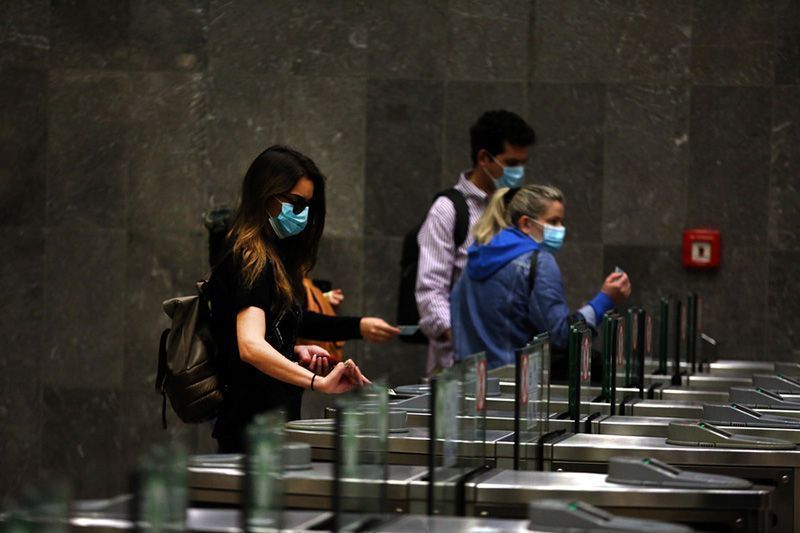
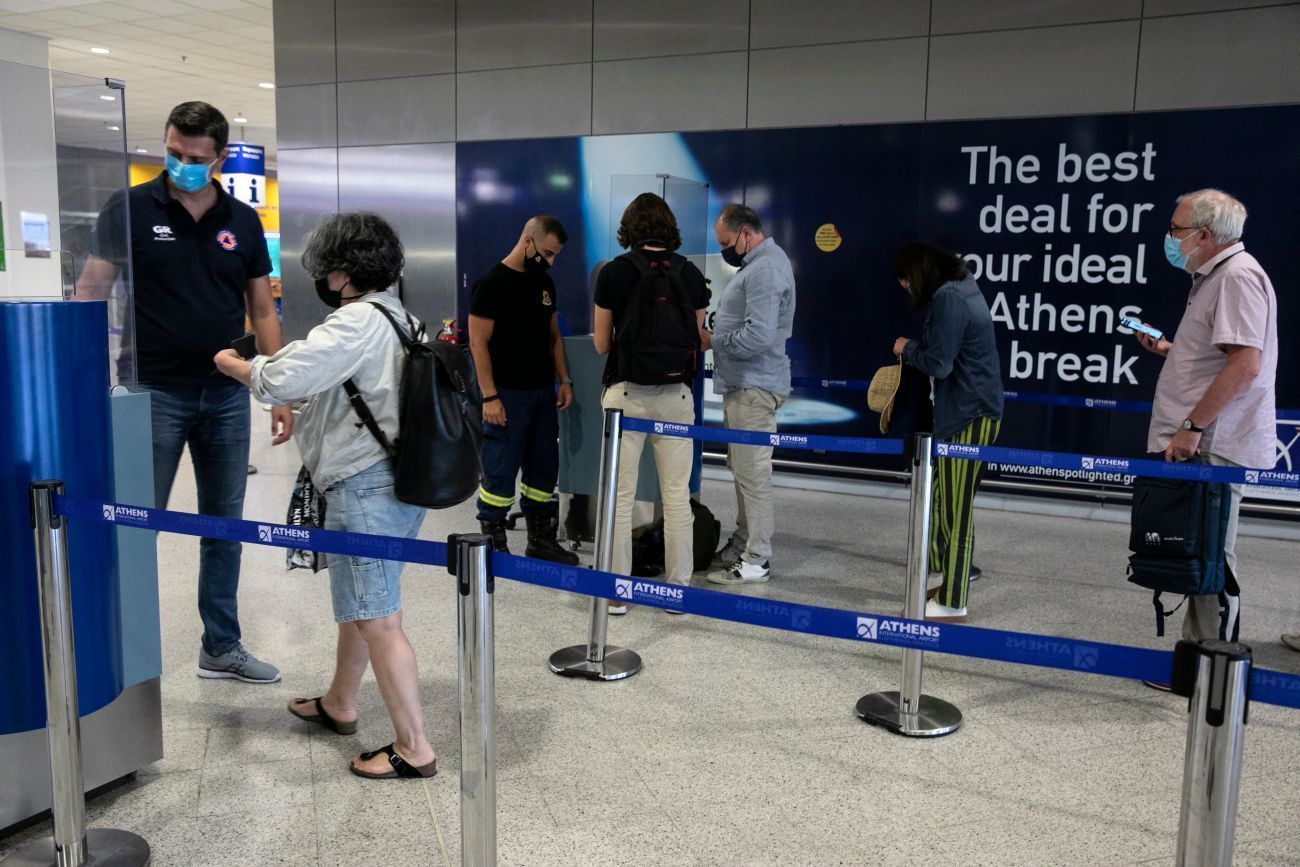
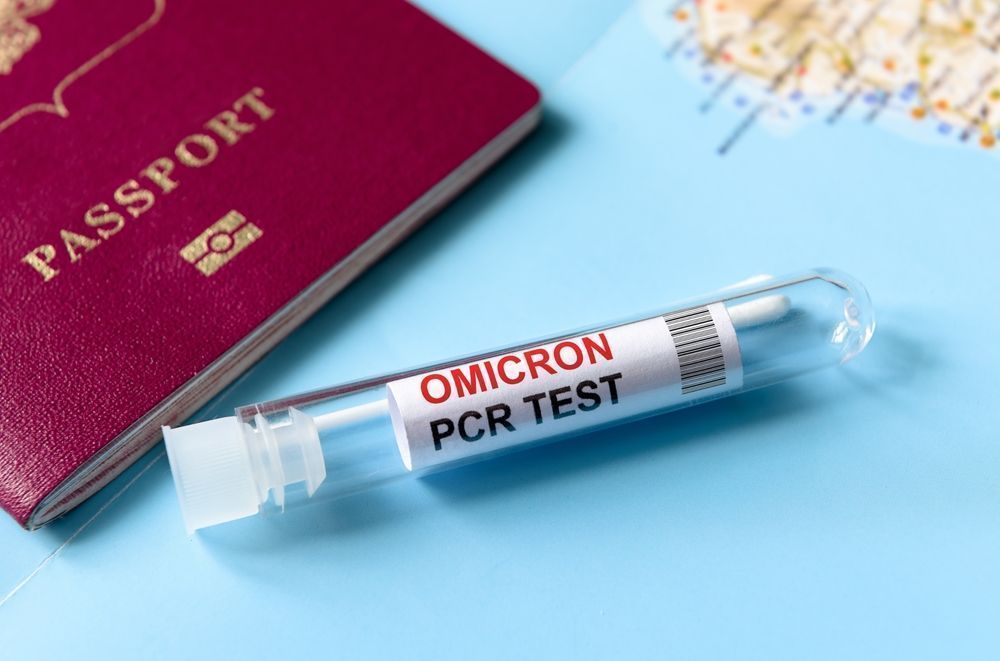
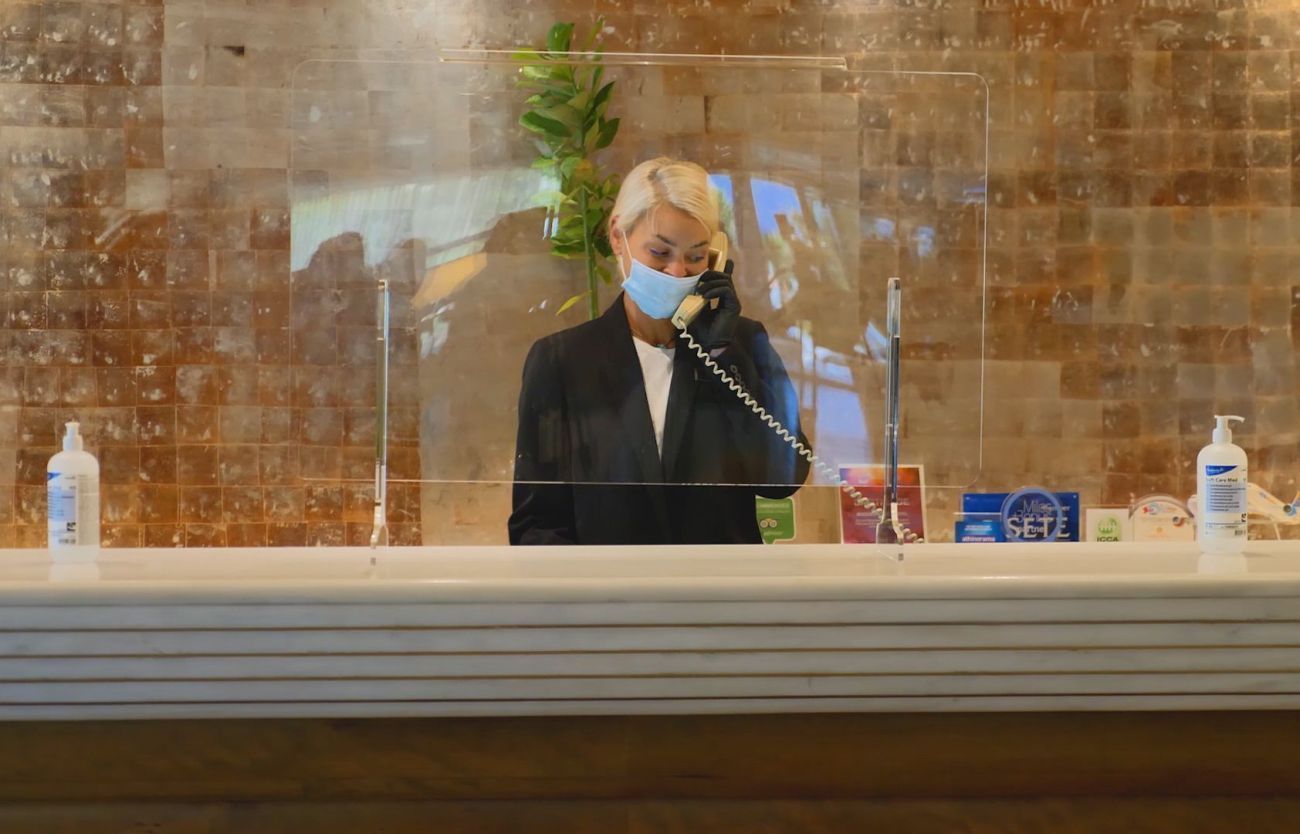

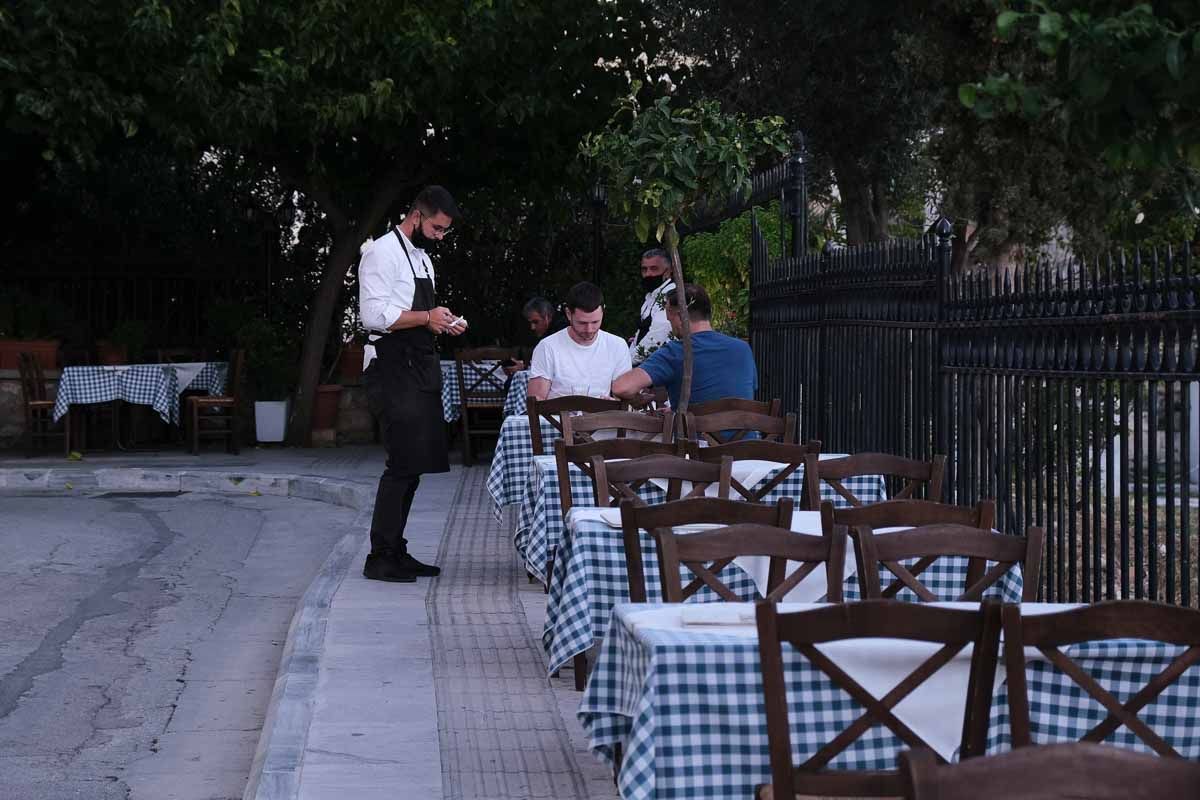
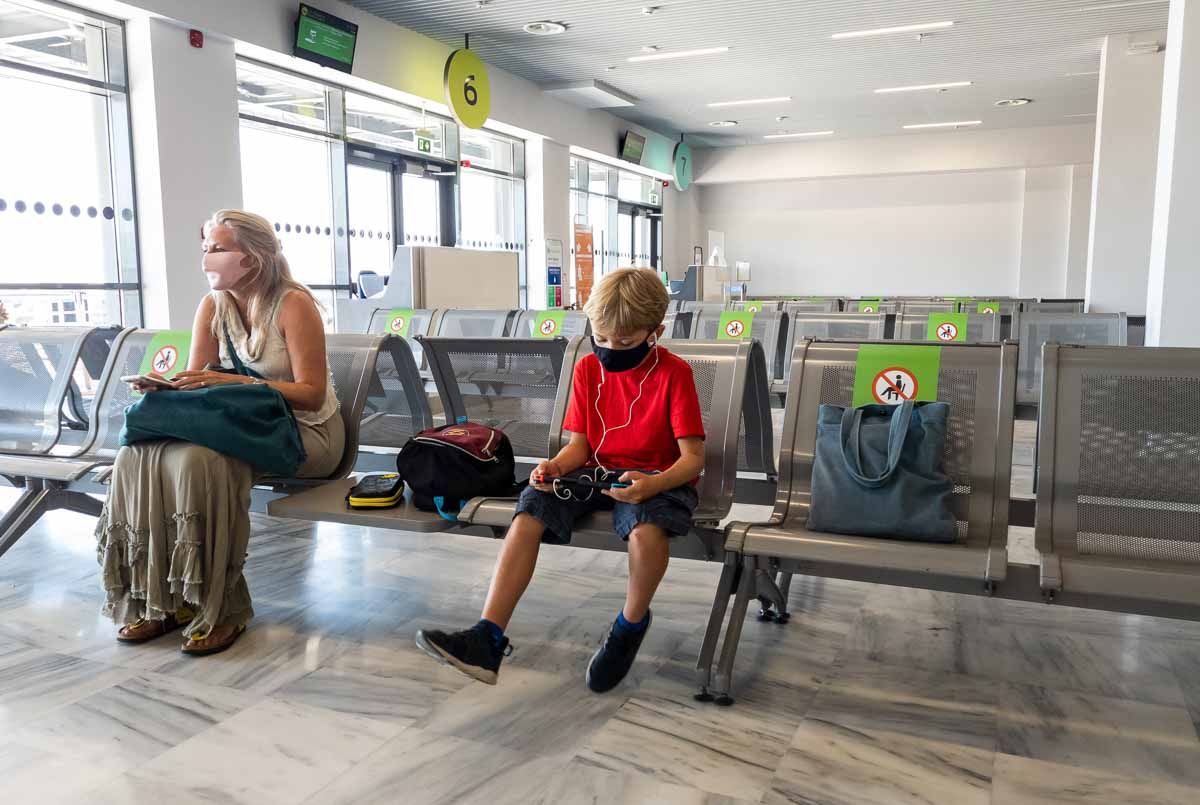
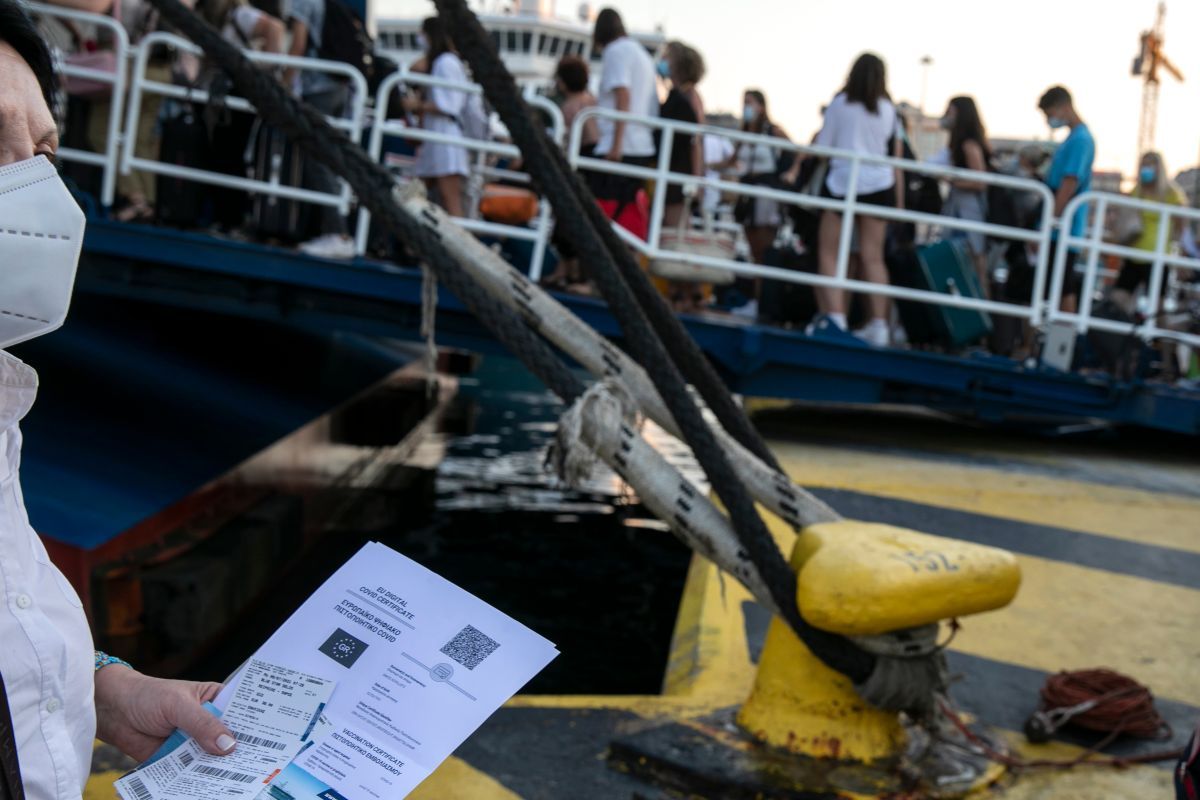
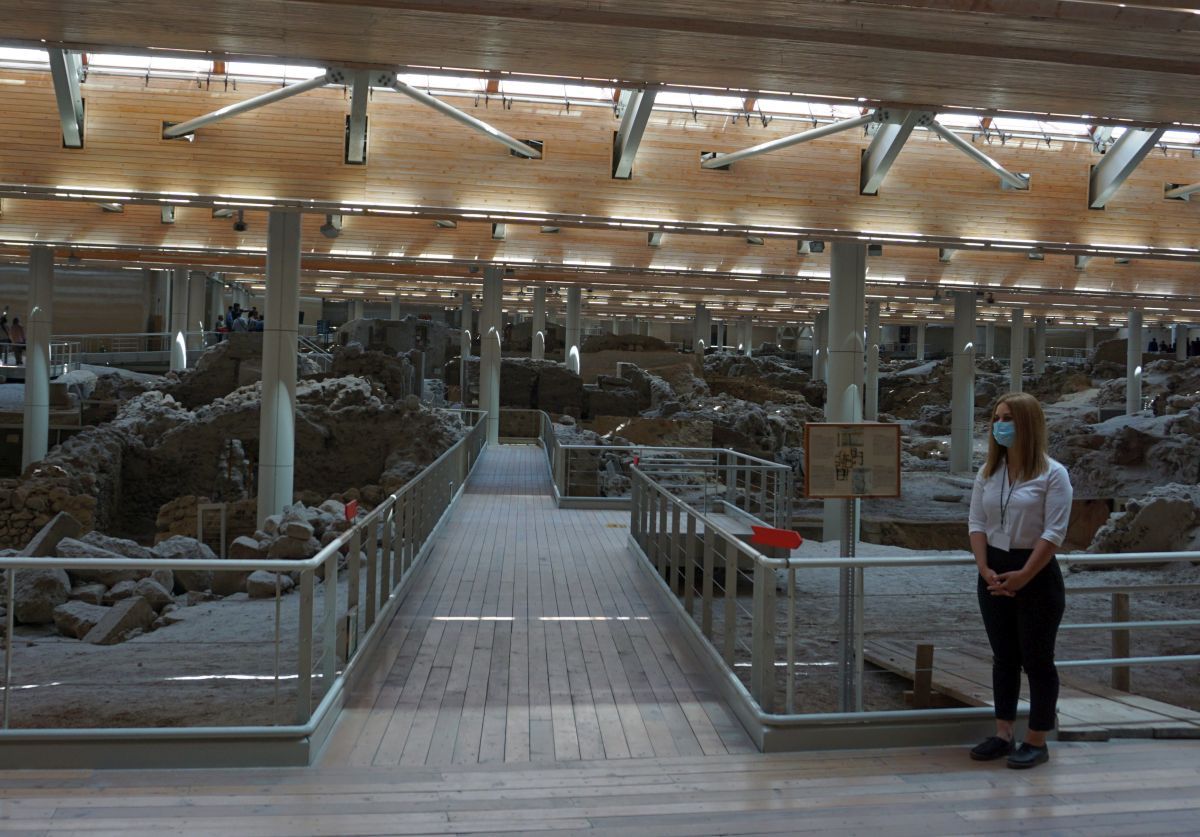

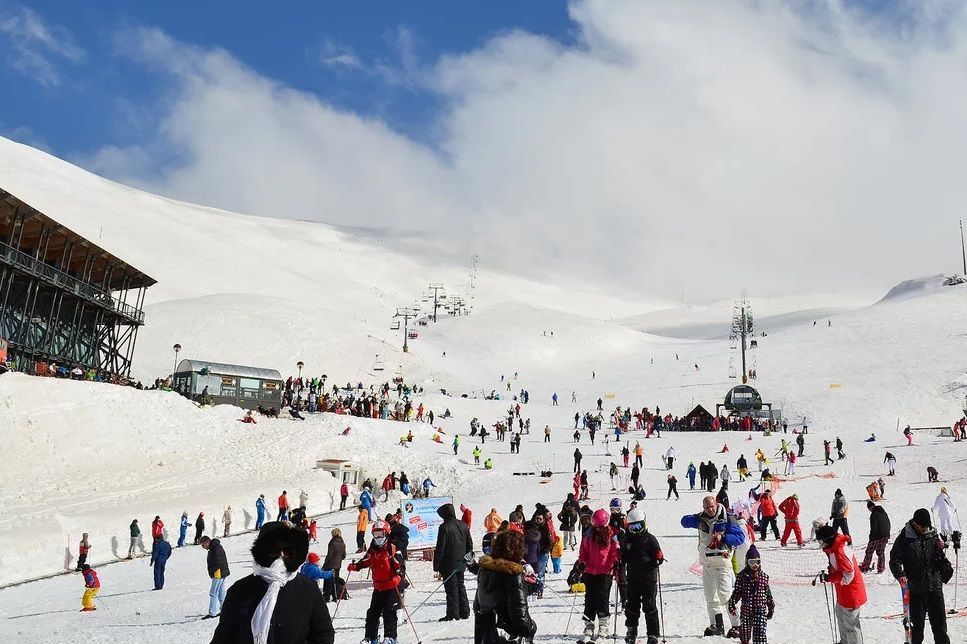
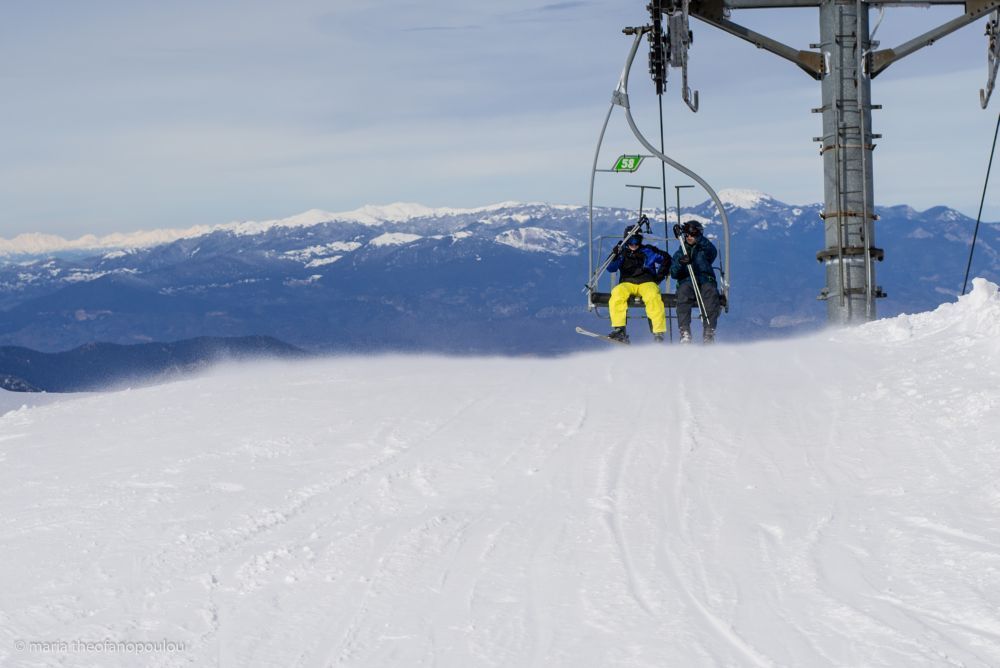

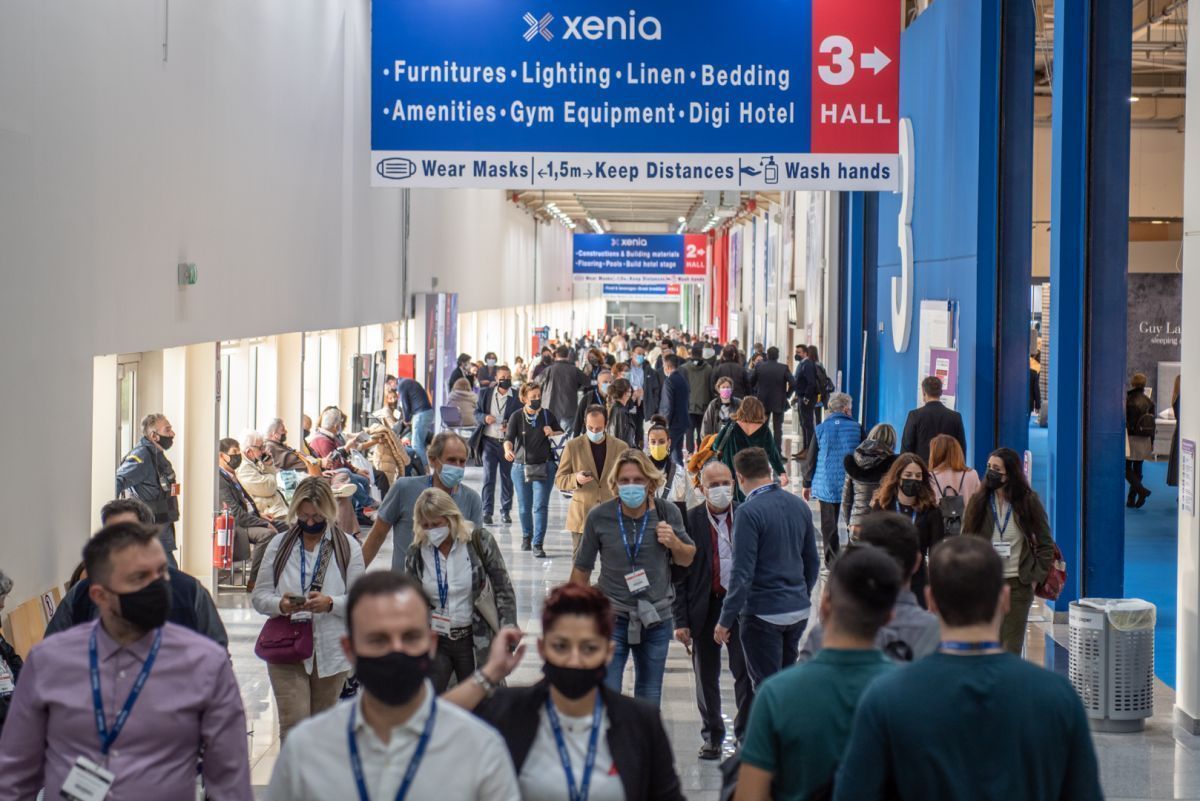




We are coming to Greece on May 10th to May 25th and I’m really hoping that Greece does not change their restriction requirements for Covid. We are fully vaccinated and boosted but with the very high numbers of Covid in Greece still being present, we would feel so much better about coming if the restrictions all remain. Thank you
You know i am wonder8ing if Covid has a Greek variant? I am Dutch and we also have Covid/omicron but everything is open, no covid pass nothing anymore already for a couple of weeks. I miss something or the Greek people do not want tourist anymore? Beautiful country and beautiful and warm people but this is very very strange!!! Look at Portugal or Spain or Turkey….why should tourist go to Greece with all this restrictions??
Not Greek people but Greek government… People couldn’t care less about those sick restrictions… But keep spreading across Europe the sick decisions of this government and tourist season will be very weak or will really start then they will finally lift all of the restrictions. Do you really believe that any tourist business owner will risk not having a customers because first have to ask for certificates and than decline service to money giving tourists when not having one? Ha! Forget it! All private small tourist businesses suffered losses during last two years. Respecting those restrictions would be financial suicide.